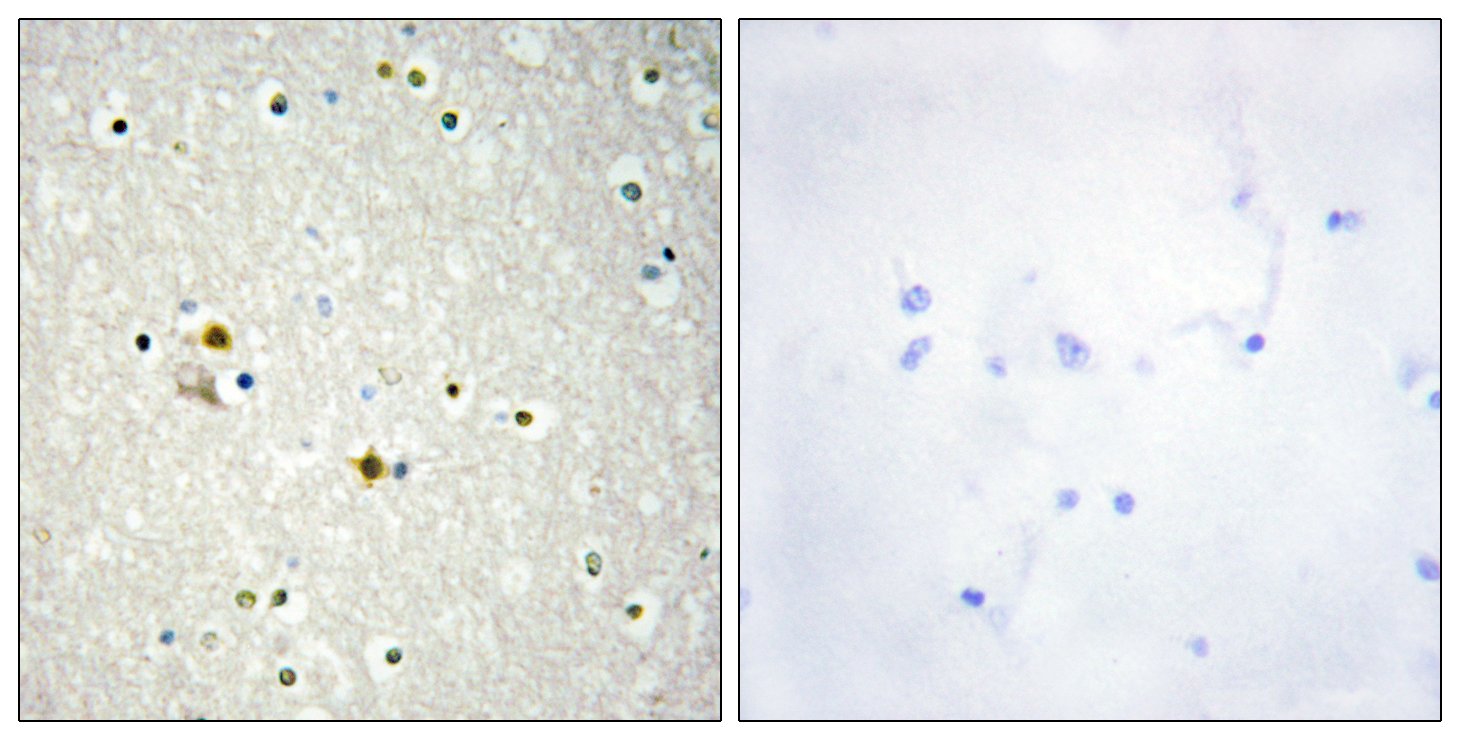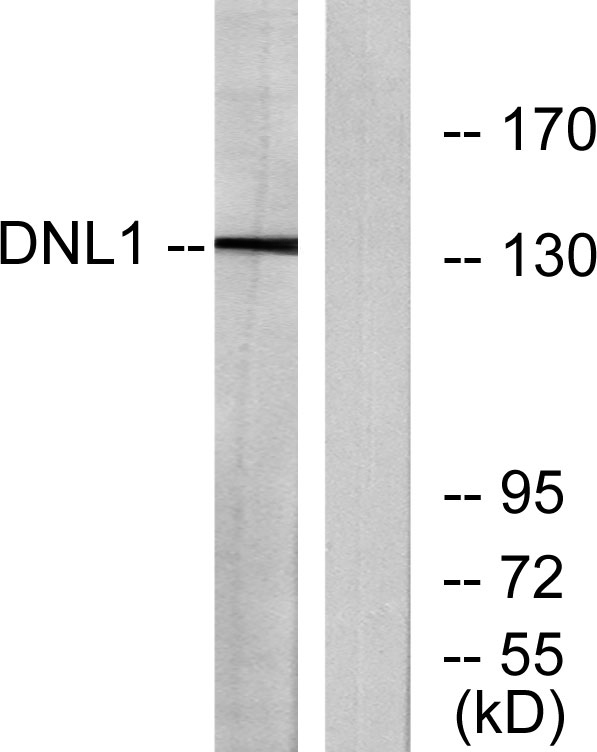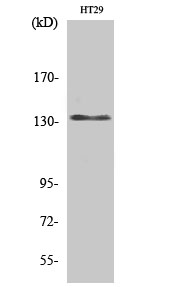产品名称
DNA Ligase I Rabbit Polyclonal Antibody
别名
LIG1; DNA ligase 1; DNA ligase I; Polydeoxyribonucleotide synthase [ATP] 1
存储缓冲液
Liquid in PBS containing 50% glycerol, 0.5% BSA and 0.02% New type preservative N.
Human Gene Link
http://www.ncbi.nlm.nih.gov/sites/entrez?db=gene&term=3978
Human Swissprot No.
P18858
Human Swissprot Link
http://www.uniprot.org/uniprotkb/P18858/entry
Mouse Swissprot No.
P37913
Mouse Swissprot Link
http://www.uniprot.org/uniprot/P37913
免疫原
The antiserum was produced against synthesized peptide derived from human DNL1. AA range:111-160
特异性
DNA Ligase I Polyclonal Antibody detects endogenous levels of DNA Ligase I protein.
宿主
Polyclonal, Rabbit,IgG
背景介绍
This gene encodes a member of the ATP-dependent DNA ligase protein family. The encoded protein functions in DNA replication, recombination, and the base excision repair process. Mutations in this gene that lead to DNA ligase I deficiency result in immunodeficiency and increased sensitivity to DNA-damaging agents. Disruption of this gene may also be associated with a variety of cancers. Alternative splicing results in multiple transcript variants. [provided by RefSeq, Jan 2014],
组织表达
Brain,Epithelium,Eye,PCR rescued clones,T lymphoblast,
信号通路
DNA replication;Base excision repair;Nucleotide excision repair;Mismatch repair;
功能
catalytic activity:ATP + (deoxyribonucleotide)(n) + (deoxyribonucleotide)(m) = AMP + diphosphate + (deoxyribonucleotide)(n+m).,cofactor:Magnesium.,disease:Defects in LIG1 seem to cause immunodeficiencies and cellular hypersensitivity to DNA-damaging agents.,function:DNA ligase that seals nicks in double-stranded DNA during DNA replication, DNA recombination and DNA repair.,online information:DNA ligase entry,online information:LIG1 mutation db,similarity:Belongs to the ATP-dependent DNA ligase family.,
纯化
The antibody was affinity-purified from rabbit antiserum by affinity-chromatography using epitope-specific immunogen.



